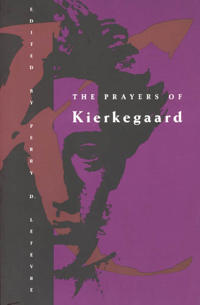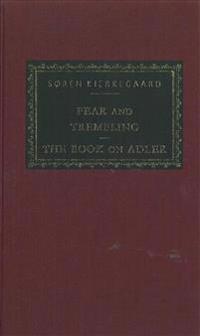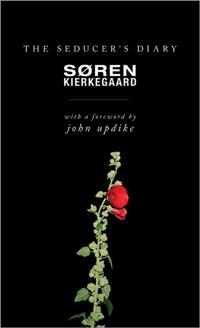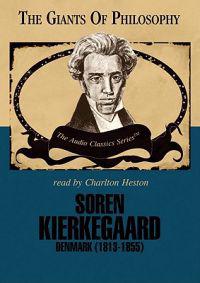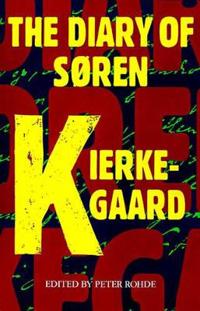Soren Kierkegaard
ISBN: 9780198747703 - UTGIVEN: 2015-12Soren Kierkegaard: Subjectivity, Irony, and the Crisis of Modernity examines the thought of Soren Kierkegaard, a unique figure, who has inspired, provoked, fascinated, and irritated people ever since he walked the streets of Copenhagen. At the end of his life, Kierkegaard said that the only model he[...]
Soren Kierkegaard
ISBN: 9780198785224 - UTGIVEN: 2018-03The book takes as its starting point the statement made by Kierkegaard towards the end of his life in which he claimed the model for his work had always been Socrates, and traces this influence on Kierkegaard's development as philosopher and religious thinker with a particular focus on the early tex[...]
Repetition and Philosophical Crumbs (Pocket)
avSoren Kierkegaard
ISBN: 9780199214198 - UTGIVEN: 2009-05-14These two complementary works give the reader a unique insight into the breadth and substance of Kierkegaard's thought. One reads like a novel and the other a Platonic dialogue but both concern the nature of love, faith, and happiness. These are the first translations to convey the literary quality[...]
The Prayers (Häftad)
avSoren Kierkegaard
ISBN: 9780226470573 - UTGIVEN: 1996-06Soren Kierkegaard's influence has been felt in many areas of human thought from theology to psychology. Nearly 100 of his prayers are gathered here, illuminating his own life of prayer and speaking to the concerns of Christians today. The second part of the volume is a reinterpret ation of the life [...]
The Paradoxical Rationality of Soren Kierkegaard (Inbunden)
avRichard Phillip McCombs
ISBN: 9780253006479 - UTGIVEN: 201304Soren Kierkegaard deliberately feigned irrationality in many of his pseudonymous writings in order to present a rational argument about reason and faith. Richard McCombs posits that Kierkegaard's strategy of revealing the philosophical and religious underpinnings of his thought was both instructive [...]
Training in Christianity (Häftad)
avSoren Kierkegaard, John F. Thornton
ISBN: 9780375725647 - UTGIVEN: 200412The nineteenth-century Danish philosopher offers a challenging approach to the Christian faith and calls for living out the implications of Christianity in every aspect of life, explaining how to develop one's personal integrity in accordance with the truths of revealed religion and basing his call [...]
Fear and Trembling/the Book on Adler (Inbunden)
avSoren Kierkegaard
ISBN: 9780679431305 - UTGIVEN: 199404Two works in one volume. Introduction by George Steiner; Translation by Walter Lowrie
Attack Upon Christendom (Häftad)
avSoren Kierkegaard
ISBN: 9780691019505 - UTGIVEN: 1968-04A religious diatribe written from within the Church against the established order of things in a presumably "Christian" land.[...]
Philosophical Fragments (Pocket)
avSoren Kierkegaard, Edna H. (EDT) Hong, Howard V. (EDT) Hong
ISBN: 9780691020365 - UTGIVEN: 1985-11This volume contains a new translation, with a historical introduction by the translators, of two works written under the pseudonym Johannes Climacus. Through Climacus, Kierkegaard contrasts the paradoxes of Christianity with Greek and modern philosophical thinking. In Philosophical Fragments he beg[...]
Practice in Christianity (Pocket)
avSoren Kierkegaard, Howard V. Hong, Edna Hatlestad (EDT) Hong
ISBN: 9780691020631 - UTGIVEN: 1991-10Of the many works he wrote during 1848, his "richest and most fruitful year," Kierkegaard specified Practice in Christianity as "the most perfect and truest thing." In his reflections on such topics as Christ's invitation to the burdened, the imitatio Christi, the possibility of offense, and the exa[...]
Works of Love (Häftad)
avSoren Kierkegaard
ISBN: 9780691059167 - UTGIVEN: 199803The various kinds and conditions of love are a common theme for Kierkegaard, beginning with his early "Either/Or", through "The Diary of the Seducer" and Judge William's eulogy on married love, to his last work, on the changelessness of God's love. "Works of Love", the midpoint in the series, is als[...]
Christian Discourses (Pocket)
avSoren Kierkegaard, Howard V. (EDT) Hong, Edna H. (EDT) Hong
ISBN: 9780691140780 - UTGIVEN: 2009-09First published in 1848, Christian Discourses is a quartet of pieces written and arranged in contrasting styles. Parts One and Three, "The Cares of the Pagans" and "Thoughts That Wound from Behind--for Upbuilding," serve as a polemical overture to Kierkegaard's collision with the established order o[...]
Without Authority (Pocket)
avSoren Kierkegaard, Howard V. (EDT) Hong, Edna H. (EDT) Hong
ISBN: 9780691140797 - UTGIVEN: 2009-10"Without authority," a phrase Kierkegaard repeatedly applied to himself and his writings, is an appropriate title for this volume of five short works that in various ways deal with the concept and practice of authority. The Lily in the Field and the Bird of the Air contemplates the teaching authorit[...]
The Moment and Late Writings (Pocket)
avSoren Kierkegaard, Howard V. (EDT) Hong, Edna H. (EDT) Hong
ISBN: 9780691140810 - UTGIVEN: 2009-09Kierkegaard, a poet of ideals and practitioner of the indirect method, also had a direct and polemical side. He revealed this in several writings throughout his career, culminating in The Moment, his attack against the established ecclesiastical order. Kierkegaard was moved to criticize the church b[...]
Fear and Trembling and the Sickness Unto Death (Pocket)
avSoren Kierkegaard
ISBN: 9780691158310 - UTGIVEN: 2013-04-28The Seducer's Diary (Häftad)
avSoren Kierkegaard
ISBN: 9780691158419 - UTGIVEN: 201305"In the vast literature of love, The Seducer's Diary is an intricate curiosity--a feverishly intellectual attempt to reconstruct an erotic failure as a pedagogic success, a wound masked as a boast," observes John Updike in his foreword to Soren Kierkegaard's narrative. This work, a chapter from Kier[...]
Diary of a Seducer (Häftad)
avDeceased Soren Kierkegaard
ISBN: 9780826418470 - UTGIVEN: 200605Diary of a Seducer records Johannes's discovery of a girl with the Shakespearean name Cordelia, whom he sets out to control. Intricately, meticulously, cunningly, the seduction proceeds. No detail is too small to escape Johannes. "She sits on the sofa by the tea table and I sit on a chair at her sid[...]
The Concept of Anxiety in Soren Kierkegaard (Inbunden)
avArne Gron, Jeanette B. L. (TRN) Knox, Arne Gron
ISBN: 9780881461268 - UTGIVEN: 2008-10This is a Danish classic available in translation. From the preface: "The Concept of Anxiety" is one of Kierkegaard's major works. It summarizes and anticipates themes that are developed in his other works, but not by presenting a unified perception. It has more the character of a work that constitu[...]
Fear and Trembling (Häftad)
avSoren Kierkegaard
ISBN: 9781461078418 - UTGIVEN: 201104In our time nobody is content to stop with faith but wants to go further. It would perhaps be rash to ask where these people are going, but it is surely a sign of breeding and culture for me to assume that everybody has faith, for otherwise it would be queer for them to be . . . going further. In th[...]
The Sickness Unto Death: Sygdommen Til Doden (Häftad)
avSoren Kierkegaard, Anti Climacus, Dragan Nikolic
ISBN: 9781502862297 - UTGIVEN: 2014-10The Sickness Unto Death (Häftad)
avSoren Kierkegaard, Anti Climacus
ISBN: 9781503071605 - UTGIVEN: 2014-11




